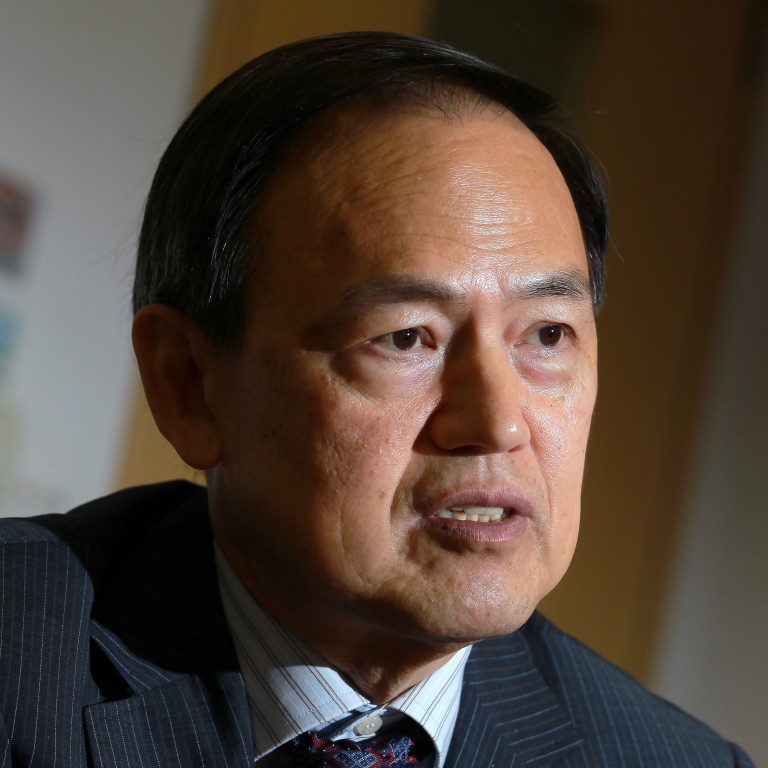
Former Hong Kong privacy commissioner argues lack of regulation makes it ‘impractical’ for officials to provide information to journalists
- Former privacy commissioner insists media’s lack of ‘self-disciplinary’ system puts onus on outlets to convince government to cooperate with their requests
- The remarks landed in the midst of a wider conversation about press freedom following the conviction of an RTHK contributor and recent moves to restrict access to government databases
Even though the city’s privacy law provided an exemption for the press, former commissioner Allan Chiang Yam-wang insisted on Saturday that it would be “impractical” for government departments to entertain each and every journalist’s request for information on the assumption it would be used for news purposes.
“Even though the importance of journalism is unquestionable, the industry has always lacked registration, qualification and self-disciplinary systems,” the current adjunct law professor at the University of Hong Kong (HKU) said in a pre-recorded message broadcast by RTHK, adding that past efforts advocating for such mechanisms had not succeeded.
As such, he argued, it was up to each media organisation to convince government departments to cooperate with their requests.

Chiang appeared to be throwing his support behind recent moves by authorities to limit access to previously public records, though he did say the government should adopt a lower threshold for releasing such information when a press outlet could demonstrate it had sufficiently rigorous practices in place.
Chris Yeung Kin-hing, chairman of the Hong Kong Journalists Association, said the media played its part “with self-regulation” and abided by the law, adding the Hong Kong Press Council handled complaints against the media.
Chiang’s remarks came in the midst of a wider conversation about press freedom following the conviction last week of RTHK contributor Bao Choy Yuk-ling.
Hong Kong magistrate’s suggestion for database-searching journalists ‘unrealistic’
Choy had ticked “traffic and transport-related matters” as the reason for her search, rather than news reporting, which is not an option on the application form.
Her conviction prompted an outcry among press freedom advocates, and came as the government has moved to limit access to information elsewhere.
Officials have announced they will stop providing business directors’ identity card numbers and residential addresses in the company registry, an important investigative tool for journalists, while the judiciary has said it will start withholding defendants’ addresses and the details of police officers involved in cases.
Plan to cut access to Hong Kong company heads’ data ‘will shield lawbreakers’
The government has defended the moves as necessary to stem a tide of doxxing attacks – the malicious dumping of personal information in the public domain – that began during the 2019 anti-government protests.
Pointing to the changes to the company registry, Chiang on Saturday said certain information on firms’ directors would remain, including their full names, contact addresses and part of their identity card numbers. He noted that Britain, for instance, also withheld certain information in its equivalent database.
The former commissioner was a guest on RTHK’s weekly programme Letter to Hong Kong, during which he addressed his correspondence to John Bacon-Shone, an associate dean of HKU’s Social Sciences faculty, who was the chairman of the Law Reform Commission’s subcommittee to recommend the Personal Data (Privacy) Ordinance.
Bacon-Shone said he agreed that allowing general access to private data was problematic, evidenced by recent incidents of doxxing, but added there was a “compelling reason” to be able to uniquely identify company directors.
He also argued that journalists’ access should be subject to checks and balances given past incidents where babies’ birth certificates were published, and suggested a law and an independent regulatory system should be established to make decisions about access.
Chiang went on to say the government needed to comply with the privacy law, which only grants three exemptions for disclosing sensitive information – for the detection of crimes, emergencies and journalistic purposes. However, the last of those only applied if a department had a reasonable cause to believe the information to be reported would be in the interest of the public.

